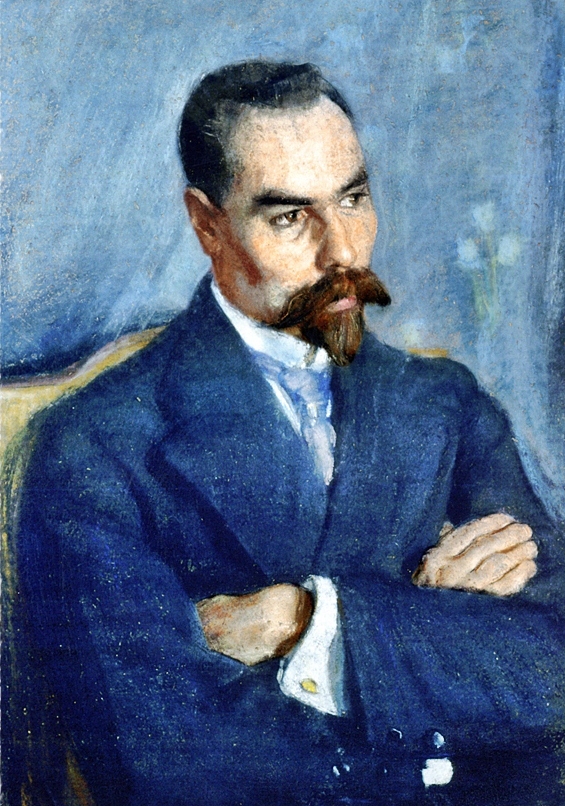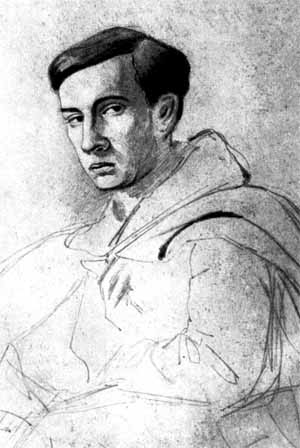|
Strekoza
''Strekoza'' () was a Russian weekly magazine of humour and satire established in Saint Petersburg in 1875 by the publisher German Kornfeld. Its original editor-in-chief was Nikolai Bogdanov who left in 1879 to be succeeded by Ippolit Vasilevsky (1879-1905). In its heyday its circulation peaked at 9 thousand.Стрекоза at the Brief Russian Encyclopedia // Фундаментальная электронная энциклопедия. Краткая литературная энциклопедия Initially seen by many as a successor to the leading Russian satirical magazine '''' which had been closed in 1873, ''Strekoza'' attracted many authors, associated with its radical predecessor, ... [...More Info...] [...Related Items...] OR: [Wikipedia] [Google] [Baidu] |
Gavriil Zhulev
Gavriil Nikolayevich Zhulev (, 5 July 1836, Spasskoye, Bronnitsky Uyezd, Moscow Governorate, — 12 July 1878, Saint Petersburg, Russian Empire) was a Russian satirical poet, dramatist and actor. Biography A St Petersburg Theatre college alumnus, Zhulev started out as a professional actor and joined the Alexandrinka troupe (where his sister Yekaterina Zhuleva was by this time a well-known actress) in 1853 which he stayed with until 1875. Invited to ''Iskra'' by Nikolai Kurochkin, Zhulev debuted as published author in 1860 to become a regular and prolific contributor to this magazine, as well as '' Budilnik'', '' Peterburgskaya Gazeta'', '' Peterburgsky Listok'' and ''Strekoza'' (in which he edited the poetry section), using the pen names Skorbny Poet (Mournful Poet), Debutante, and Gus (Goose). Zhulev released two collections of poetry, which he compiled himself, ''Pesni Skorbnogo poeta'' (Songs of the Mournful Poet, 1863) and ''Bah! Znakomuye vse litsa!'' (Bah! All Familiar Fa ... [...More Info...] [...Related Items...] OR: [Wikipedia] [Google] [Baidu] |
Valery Bryusov
Valery Yakovlevich Bryusov ( rus, Вале́рий Я́ковлевич Брю́сов, p=vɐˈlʲerʲɪj ˈjakəvlʲɪvʲɪdʑ ˈbrʲusəf, a=Valyeriy Yakovlyevich Bryusov.ru.vorb.oga; – 9 October 1924) was a Russian poet, prose writer, dramatist, translator, critic and historian. He was one of the principal members of the Russian Symbolist movement.Darko Suvin, "Bryusov,Valery" in Curtis C. Smith, '' Twentieth-Century Science-Fiction Writers''. Chicago, St. James, 1986. (pp. 840–41). Background Valery Bryusov was born on 13 December 1873 (1 December 1873 according to the old Julian calendar) into a merchant's family in Moscow. His parents were educated for their class and had some literary associations, but had little to do with his upbringing, leaving the boy largely to himself. He spent a great deal of time reading "everything that fell into ishands", including the works of Charles Darwin and Jules Verne, as well as various materialistic and scientific essays. The ... [...More Info...] [...Related Items...] OR: [Wikipedia] [Google] [Baidu] |
Vladimir Meshchersky
Prince Vladimir Petrovich Meshchersky (11 January 1839 – 23 July 1914) was a Russian journalist and novelist who, throughout his career, wielded significant political influence. He was the grandson of historian Nikolay Karamzin. A strong supporter of the role of the landed gentry in politics and administration, Meshchersky "turned politics into an industry with which he traded in the most shameless manner for the benefit of himself and his favourites" – young men whose careers he advanced. A friend of composer Pyotr Ilyich Tchaikovsky, he acquired a reputation as a homosexual philanderer. His patrons, the Tsars Alexander III and Nicholas II, protected him from public disgrace. He was the editor of '' Grazhdanin'' (The Citizen), a traditional conservative newspaper which received subsidies from the imperial authorities. According to Leon Trotsky, "The sole paper which sarNicholas read for years, and from which he derived his ideas, was a weekly published on state revenue ... [...More Info...] [...Related Items...] OR: [Wikipedia] [Google] [Baidu] |
Russian-language Magazines
Russian is an East Slavic language belonging to the Balto-Slavic branch of the Indo-European language family. It is one of the four extant East Slavic languages, and is the native language of the Russians. It was the ''de facto'' and ''de jure'' official language of the former Soviet Union. Constitution and Fundamental Law of the Union of Soviet Socialist Republics, 1977: Section II, Chapter 6, Article 36 Russian has remained an official language of the Russian Federation, Belarus, Kazakhstan, Kyrgyzstan, and Tajikistan, and is still commonly used as a lingua franca in Ukraine, Moldova, the Caucasus, Central Asia, and to a lesser extent in the Baltic states and Israel. Russian has over 253 million total speakers worldwide. It is the most spoken native language in Europe, the most spoken Slavic language, as well as the most geographically widespread language of Eurasia. It is the world's seventh-most spoken language by number of native speakers, and the world's ninth-most ... [...More Info...] [...Related Items...] OR: [Wikipedia] [Google] [Baidu] |
Russian Political Satire
Russian(s) may refer to: *Russians (), an ethnic group of the East Slavic peoples, primarily living in Russia and neighboring countries *A citizen of Russia *Russian language, the most widely spoken of the Slavic languages *''The Russians'', a book by Hedrick Smith *Russian (comics), fictional Marvel Comics supervillain from ''The Punisher'' series *Russian (solitaire), a card game * "Russians" (song), from the album ''The Dream of the Blue Turtles'' by Sting *"Russian", from the album ''Tubular Bells 2003'' by Mike Oldfield *"Russian", from the album '' '' by Caravan Palace *Nik Russian, the perpetrator of a con committed in 2002 See also * *Russia (other) *Rus (other) *Rossiysky (other) *Russian River (other) *Rushen (other) Rushen may refer to: Places * Rushen, formally Kirk Christ Rushen, a historic parish of the Isle of Man ** Rushen (constituency), a House of Keys constituency of which the parish forms part ** Rushen (sheading ... [...More Info...] [...Related Items...] OR: [Wikipedia] [Google] [Baidu] |
Magazines Disestablished In 1908
A magazine is a periodical literature, periodical publication, print or digital, produced on a regular schedule, that contains any of a variety of subject-oriented textual and visual content (media), content forms. Magazines are generally financed by advertising, newsagent's shop, purchase price, prepaid subscription business model, subscriptions, or by a combination of the three. They are categorised by their frequency of publication (i.e., as weeklies, monthlies, quarterlies, etc.), their target audiences (e.g., women's and trade magazines), their subjects of focus (e.g., popular science and religious), and their tones or approach (e.g., works of satire or humor). Appearance on the cover of print magazines has historically been understood to convey a place of honor or distinction to an individual or event. Term origin and definition Origin The etymology of the word "magazine" suggests derivation from the Arabic language, Arabic (), the broken plural of () meaning "depot, s ... [...More Info...] [...Related Items...] OR: [Wikipedia] [Google] [Baidu] |
Defunct Magazines Published In Russia
{{Disambiguation ...
Defunct may refer to: * ''Defunct'' (video game), 2014 * Zombie process or defunct process, in Unix-like operating systems See also * * :Former entities * End-of-life product * Obsolescence Obsolescence is the process of becoming antiquated, out of date, old-fashioned, no longer in general use, or no longer useful, or the condition of being in such a state. When used in a biological sense, it means imperfect or rudimentary when comp ... [...More Info...] [...Related Items...] OR: [Wikipedia] [Google] [Baidu] |
Anton Chekhov
Anton Pavlovich Chekhov (; ; 29 January 1860 – 15 July 1904) was a Russian playwright and short-story writer, widely considered to be one of the greatest writers of all time. His career as a playwright produced four classics, and his best short stories are held in high esteem by writers and critics. Along with Henrik Ibsen and August Strindberg, Chekhov is often referred to as one of the three seminal figures in the birth of early modernism in the theatre. Chekhov was a physician by profession. "Medicine is my lawful wife," he once said, "and literature is my mistress." Chekhov renounced the theatre after the reception of ''The Seagull'' in 1896, but the play was revived to acclaim in 1898 by Konstantin Stanislavski's Moscow Art Theatre, which subsequently also produced Chekhov's ''Uncle Vanya'' and premiered his last two plays, ''Three Sisters (play), Three Sisters'' and ''The Cherry Orchard''. These four works present a challenge to the acting ensemble as well as to a ... [...More Info...] [...Related Items...] OR: [Wikipedia] [Google] [Baidu] |
Viktor Bilibin
Viktor Viktorovich Bilibin (, 2 February 1859, Saint Petersburg, Imperial Russia, — 25 June 1908, Saint Petersburg) was a Russian writer and playwright, one of the leading Russian humourists and satirists of the late 19th century, who used the pen name I. Grek (И. Грэк). His best-known stories were collected in the books ''Love and Laughter'' (Любовь и смех, 1882), ''Humour and Fantasy'' (Юмор и фантазия, 1897) and ''Humorous Patterns'' (Юмористические узоры, 1898).Katayev, V.BChekhov and His Literary Friends// Чехов и его литературное окружение. Изд-во Моск. ун-та, 1982. After Nikolai Leykin's death he became the editor-in-chief of ''Oskolki'' (1906—1908). Bilibin was a friend of Anton Chekhov, whom he corresponded with for 15 years (since 1885). The two co-authored at least one humorous sketch "Motley Fairytales" (Пёстрые сказки, ''Novaya Gazeta'', 1886), signed The Two ... [...More Info...] [...Related Items...] OR: [Wikipedia] [Google] [Baidu] |
Dmitry Grigorovich (writer)
Dmitry Vasilyevich Grigorovich () ( – ) was a Russian writer, best known for his first two novels, '' The Village'' and '' Anton Goremyka''. He was lauded as the first author to have realistically portrayed the life of the Russian rural community and openly condemn the system of serfdom. Biography Dmitry Grigorovich was born in Simbirsk to a family of the landed gentry. His Russian father was a retired hussar officer, his French mother, Cydonia de Varmont, was a daughter of a royalist who perished on guillotine in the times of the Reign of Terror. Having lost his father early in his life, Dmitry was brought up by his mother and grandmother, the two women who hardly spoke anything but French. Up until the age of eight the boy had serious difficulties with his Russian.Meshcheryakov, V. The Introduction to the Selected Works by D.V.Grigorovich. Moscow. Khudozhestvennaya Literatura Publishers, 1976. Pp. 527-530 "I was taking my lessons of Russian from servants, local peasants bu ... [...More Info...] [...Related Items...] OR: [Wikipedia] [Google] [Baidu] |
Yakov Polonsky
Yakov Petrovich Polonsky (; ) was a leading Pushkinist poet who wrote poems faithful to the traditions of Russian Romantic poetry during the heyday of realistic prose. Of noble birth, Polonsky attended the Moscow University, where he befriended Apollon Grigoryev and Afanasy Fet. Three young and promising poets wrote pleasing and elegant poems, emulating Pushkin and Mikhail Lermontov. He graduated from the university in 1844, publishing his first collection of poems the same year. Polonsky's early poetry is generally regarded as his finest; one of his first published poems was even copied by Nikolai Gogol into his notebook. Unlike some other Russian poets, Polonsky did not belong to an affluent family. In order to provide for his relatives, he joined the office of Prince Vorontsov, first at Odessa and then (1846–51) at Tiflis. The spectacular nature of the Black Sea coast strengthened his predilection for Romanticism. Polonsky turned his attention to the Caucasian subjects an ... [...More Info...] [...Related Items...] OR: [Wikipedia] [Google] [Baidu] |





